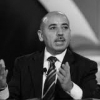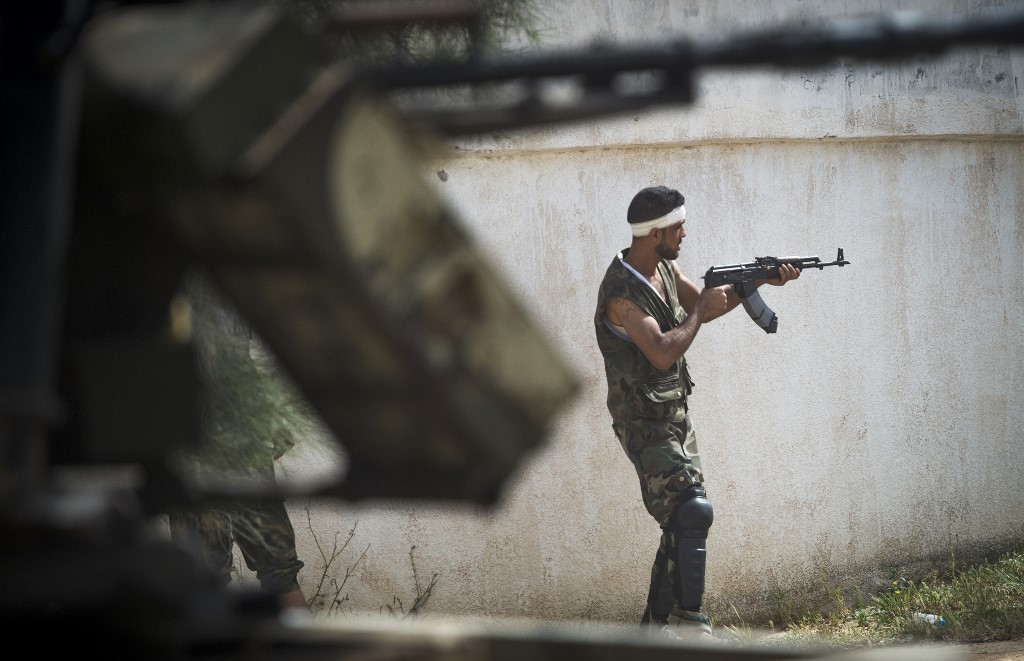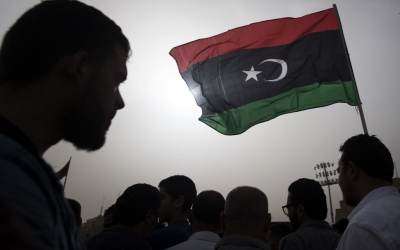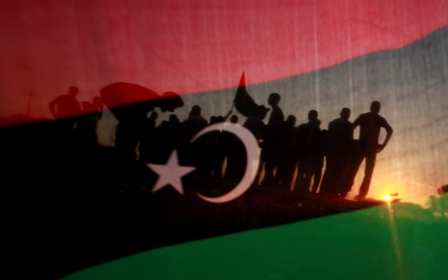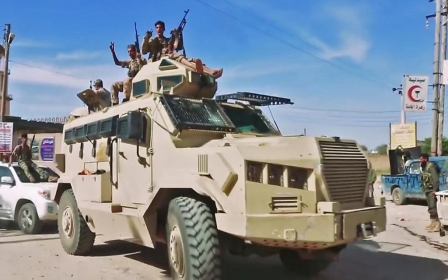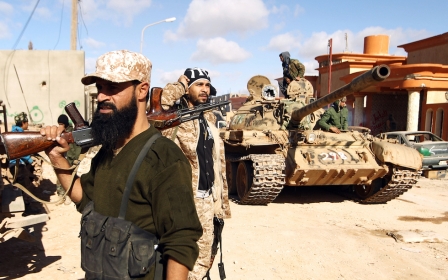The battle for Libya's oil wealth is set to intensify
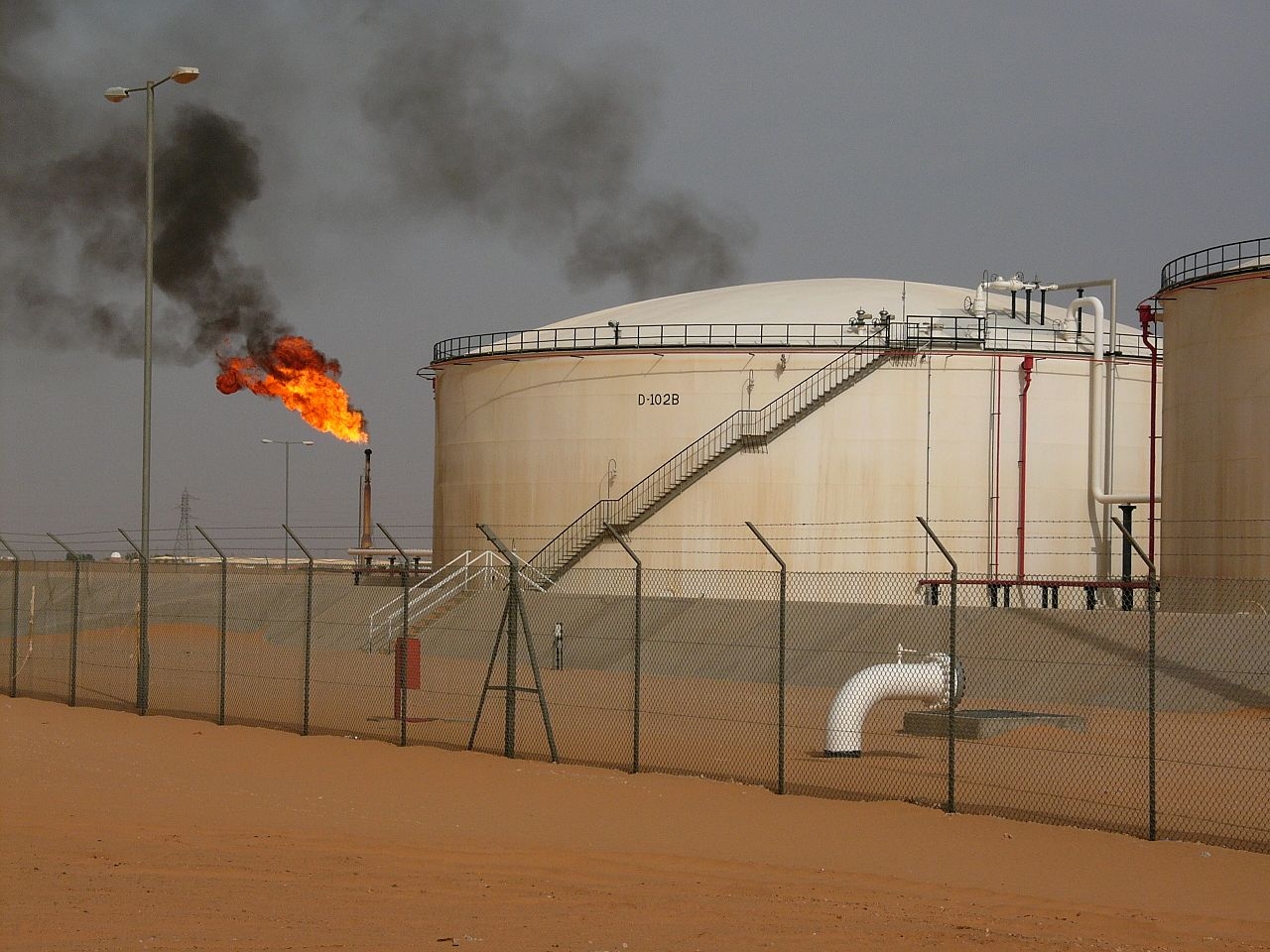
The conflict between rival groups in Libya, which has been plaguing the country since the fall of the Gaddafi regime in 2011, is not showing any signs of ending soon. Instead, it has been intensifying since the offensive waged by General Khalifa Haftar against the capital, Tripoli, began on 4 April.
The divisions in Libya are over control of power and wealth, in a country where wealth is derived almost exclusively from oil revenues. As the Tripoli offensive goes on, this source of income will likely become a crucial part of it.
Libya has estimated oil reserves of 48 billion barrels, the largest in Africa and 9th largest in the world. Technically recoverable reserves of shale oil are estimated at 26 billion barrels. Oil and gas exports constitute around 90 percent of Libya's revenue, and any major disruption means a sharp decline in income.
Fierce competition
Libya has a typical rentier economy, in which the state is the main employer, providing salaries for almost 1.8 million people, representing close to a third of the total population.
New MEE newsletter: Jerusalem Dispatch
Sign up to get the latest insights and analysis on Israel-Palestine, alongside Turkey Unpacked and other MEE newsletters
The country’s lucrative oil and gas market attracts fierce global competition, especially among international fossil fuel conglomerates. It also makes controlling this vast natural resource a prime driver of conflict among Libyan groups, with many competing to secure a share of the benefits.
But will the current escalation in violence lead to a wider conflict over the control of Libya’s oil resources?
This could encourage Haftar to play the oil card more heavily, if he does not succeed in taking Tripoli and achieving political power by force
Previously, different groups have attempted to use oil facilities as bargaining chips and leverage for financial and political gains. Key ports in the oil crescent region in Libya’s east were blocked by a local militia between 2013 and 2016, and in 2014, oil exports plummeted below 200,000 barrels per day (bpd) from an average of around 1.6 million bpd before the uprising.
In 2016, Haftar seized control of the facilities and terminals in Libya’s east, mainly in the oil crescent region, and he later extended his control to facilities in the south, taking the El Sharara and El Feel oilfields. The internationally recognised Government of National Accord (GNA) in Tripoli still controls other offshore facilities.
Conflict dynamics
Revenue from oil exports, however, still flows into Libya’s Central Bank in Tripoli, which works alongside the GNA. The National Oil Corporation (NOC), which dominates the country’s oil sector, has tried to stay out of political conflicts and remain a neutral institution.
Adding to the complications of Libya’s conflict dynamics, the unrecognised eastern government allied to Haftar has set up a parallel NOC in Benghazi that has repeatedly tried to sell Libyan oil on the foreign market. Such attempts have been stymied by a UN Security Council resolution preventing illicit crude oil exports.
Recent reports indicate that Haftar is now militarising oil installations in the oil crescent region, and has begun to use oil ports and air fields for war activities.
Following this move, the NOC released a statement condemning the use of its facilities for military purposes, detailing the seizure of the Es Sider airstrip and the docking of warships in the Ras Lanuf terminal by Haftar’s forces.
“The latest outbreak of hostilities... poses a serious threat to our operations, production and the national economy,” NOC head Mustafa Sanallah said.
After the outbreak of Haftar’s Tripoli offensive, it was widely reported that he received a phone call from Donald Trump, in which the US president “recognised Field Marshal Haftar's significant role in fighting terrorism and securing Libya's oil resources”.
This could encourage Haftar to play the oil card more heavily, if he does not succeed in taking Tripoli and achieving political power by force.
Political leverage
According to a French presidential official, Haftar complained that he and his forces were not benefiting from oil sales in the east of the country, and also rejected calls for a ceasefire during a recent visit with President Emmanuel Macron.
Despite the fact that Haftar controls most of the oil assets in Libya, his complaints show that he may now be seeking access to income from Libya’s oil wealth. This points to a shift in direction by Haftar, in which he may be willing to drag control over Libya’s oil exports and revenue into the ongoing conflict.
Haftar may attempt to export directly to the market, and if he does not succeed, he may go as far as to halt exports completely in areas under his control. This would amount to a serious escalation.
If the GNA, as a result of the recent war on Tripoli, is able to push back Haftar’s forces from the west of Libya and retake key oil regions, he would be stripped of important political leverage that would significantly reduce his relevance, both internally and on the international stage.
The international community must be worried about any disruption to oil exports from Libya, as this could lead to oil prices rising on the global market.
Ideally, the oil resources in the country should be spared completely from the conflict, as any hindrance has devastating consequences for the economy and adds to the suffering of the entire population.
The views expressed in this article belong to the author and do not necessarily reflect the editorial policy of Middle East Eye.
This article is available in French on Middle East Eye French edition.
Middle East Eye delivers independent and unrivalled coverage and analysis of the Middle East, North Africa and beyond. To learn more about republishing this content and the associated fees, please fill out this form. More about MEE can be found here.


